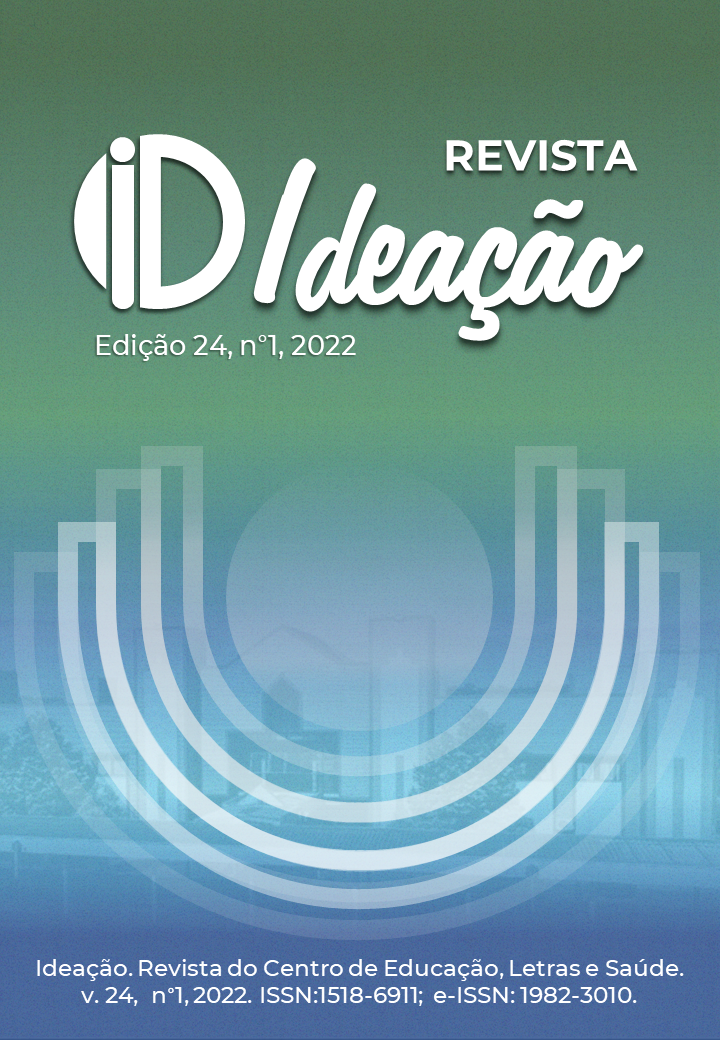A Cartografia complexa enquanto método de pesquisa na Linguística Aplicada: esboçando e avaliando um conceito
DOI:
https://doi.org/10.48075/ri.v24i1.25272Palavras-chave:
Linguística Aplicada, Metodologia, Cartografia Complexa, Biologia da Cognição, Paradigma da Complexidade.Resumo
Neste estudo, temos como objetivos a proposição e a avaliação da “cartografia complexa” enquanto método transdisciplinar pertinente ao campo da Linguística Aplicada (LA) e outras áreas afins. O referencial teórico do artigo abarca os pressupostos da Biologia da Cognição e do Paradigma da Complexidade. O estudo caracteriza-se como uma pesquisa metodológica, cujo enfoque recai sobre o próprio fazer científico e o (re)pensar de procedimentos e métodos. Primeiramente é feito uma revisão da literatura sobre o método cartográfico. Na sequência, apresentamos a experiência de implementação e avaliação de uma cartografia complexa tecida no âmbito de um curso online de formação docente realizado com 12 docentes graduadas ou graduandas em Letras na Educação a Distância. O contexto da pesquisa é esse curso online, realizado em 2019, ao longo de quatro semanas, nas quais as docentes-cursistas escreveram autonarrativas, que são instrumentos potentes de uma epistemologia complexa. Concluímos que a cartografia complexa – enquanto método – pode contribuir com as pesquisas em LA no sentido de que ela pode dar conta de uma realidade dinâmica e da dimensão subjetiva dessa realidade.
Downloads
Publicado
Como Citar
Edição
Seção
Licença
Copyright (c) 2022 Direitos partilhados conforme licença CC BY-NC-SA 4.0

Este trabalho está licenciado sob uma licença Creative Commons Attribution-NonCommercial-ShareAlike 4.0 International License.
Política para Periódicos de Acesso Livre
Autores que publicam nesta revista concordam com os seguintes termos:
1. Autores mantém os direitos autorais e concedem à revista o direito de primeira publicação, com o trabalho simultaneamente licenciado sob a Licença Creative Commons Attribution que permite o compartilhamento do trabalho com reconhecimento da autoria e publicação inicial nesta revista.
2. Autores têm autorização para assumir contratos adicionais separadamente, para distribuição não-exclusiva da versão do trabalho publicada nesta revista (ex.: publicar em repositório institucional ou como capítulo de livro), com reconhecimento de autoria e publicação inicial nesta revista.
3. Autores têm permissão e são estimulados a publicar e distribuir seu trabalho online (ex.: em repositórios institucionais ou na sua página pessoal) a qualquer ponto antes ou durante o processo editorial, já que isso pode gerar alterações produtivas, bem como aumentar o impacto e a citação do trabalho publicado (Veja O Efeito do Acesso Livre).
Licença Creative Commons
Esta obra está licenciada com uma Licença Creative Commons Atribuição-NãoComercial-CompartilhaIgual 4.0 Internacional, o que permite compartilhar, copiar, distribuir, exibir, reproduzir, a totalidade ou partes desde que não tenha objetivo comercial e sejam citados os autores e a fonte.


